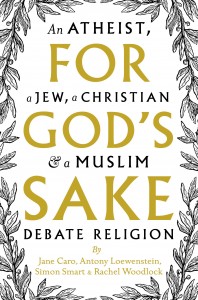UN head Valerie Amos backs arms embargo on South Sudan
My following story appears in today’s Guardian (I’m currently based in Juba, South Sudan):
Valerie Amos has joined calls for an arms embargo against South Sudan, the most senior UN official to back growing international demands for action against the country as it enters a second year of civil war.
“Anything that takes weapons off the streets, out of countries and out of communities will help us because ultimately for us it’s about bringing peace,” the UN humanitarian chief told the Guardian. “If there are no weapons, it’s harder for people to fight, peace will come sooner and we can get more aid to the people who so desperately need it.”
The United States has so far resisted efforts to implement an embargo, although the secretary of state, John Kerry, and senior members of the Obama administration have recently spoken in support of one. An arms ban would target both the South Sudanese government and the opposition, with both sides being accused of war crimes after fighting broke out in December 2013.
Tens of thousands of lives have been lost and millions of citizens forced to flee their homes during the civil war in the country. Aid group says about 2,5 million people are at risk of famine.
Amos, who leaves her position as UN under-secretary-general for humanitarian affairs and emergency relief coordinator after five years in March, was speaking in Wai in Jonglei state at the end of a three-day visit to South Sudan with Unesco peace envoy and actor Forest Whitaker.
The UN is assisting around 25,000 people in rebel-held Wai, providing food, water, some shelter and basic medical care. Amos praised the resilience of the refugees she met, adding: “I just wish that those that are really pursuing this conflict would take time out to come and see what the impact of this is, particularly on women and children.”
The economic cost of war has already reached billions of dollars and a recent Frontier Economics report found that ending the conflict this year would save the international community about $30bn.
Amos said both sides should be held accountable for human rights abuses and expressed concern about an “economic crisis” in the country. “It’s a country dependent on oil and we have seen production halved,” she warned.
After meeting the South Sudanese president Salva Kiir and many of his ministers in the capital Juba, Amos both praised and criticised authorities. “The government does not want to admit hunger figures of 2.5 million people facing severe food shortages. We have to keep the pressure on,” she said, adding that the government had improved access to aid in many areas.
Amos has urged the international community to embrace a “more interventionist” approach towards global conflicts but urged caution against military involvement. “One of the things I’ve become more conscious of as I’ve been working in places like Syria, Iraq, Yemen, Somalia, Democratic Republic of Congo and South Sudan is that we have this whole international framework of law and norms, but those rules are being broken every single day. We talk about the importance of protecting civilians yet it’s about those civilians being killed as a result of barrel bombs or women being raped.”
She said it was shameful that these abuses were tolerated. “So my question is, where is the accountability? Countries have signed up to these rules so how do we hold them accountable? When you talk about interventionism, everybody thinks about war and putting troops from another country on the ground. That’s not what I mean. When we see this happening, how do we stop it? One of my jobs is to raise these questions.”
 Vulture capitalism has seen the corporation become more powerful than the state, and yet its work is often done by stealth, supported by political and media elites. The result is privatised wars and outsourced detention centres, mining companies pillaging precious land in developing countries and struggling nations invaded by NGOs and the corporate dollar.
Best-selling journalist Antony Loewenstein travels to Afghanistan, Pakistan, Haiti, Papua New Guinea and across Australia to witness the reality of this largely hidden world of privatised detention centres, outsourced aid, destructive resource wars and militarized private security. Who is involved and why? Can it be stopped? What are the alternatives in a globalised world?
Vulture capitalism has seen the corporation become more powerful than the state, and yet its work is often done by stealth, supported by political and media elites. The result is privatised wars and outsourced detention centres, mining companies pillaging precious land in developing countries and struggling nations invaded by NGOs and the corporate dollar.
Best-selling journalist Antony Loewenstein travels to Afghanistan, Pakistan, Haiti, Papua New Guinea and across Australia to witness the reality of this largely hidden world of privatised detention centres, outsourced aid, destructive resource wars and militarized private security. Who is involved and why? Can it be stopped? What are the alternatives in a globalised world? 

 The 2008 financial crisis opened the door for a bold, progressive social movement. But despite widespread revulsion at economic inequity and political opportunism, after the crash very little has changed.
Has the Left failed? What agenda should progressives pursue? And what alternatives do they dare to imagine?
The 2008 financial crisis opened the door for a bold, progressive social movement. But despite widespread revulsion at economic inequity and political opportunism, after the crash very little has changed.
Has the Left failed? What agenda should progressives pursue? And what alternatives do they dare to imagine?
 The Blogging Revolution, released by
The Blogging Revolution, released by  The best-selling book on the Israel/Palestine conflict,
The best-selling book on the Israel/Palestine conflict,